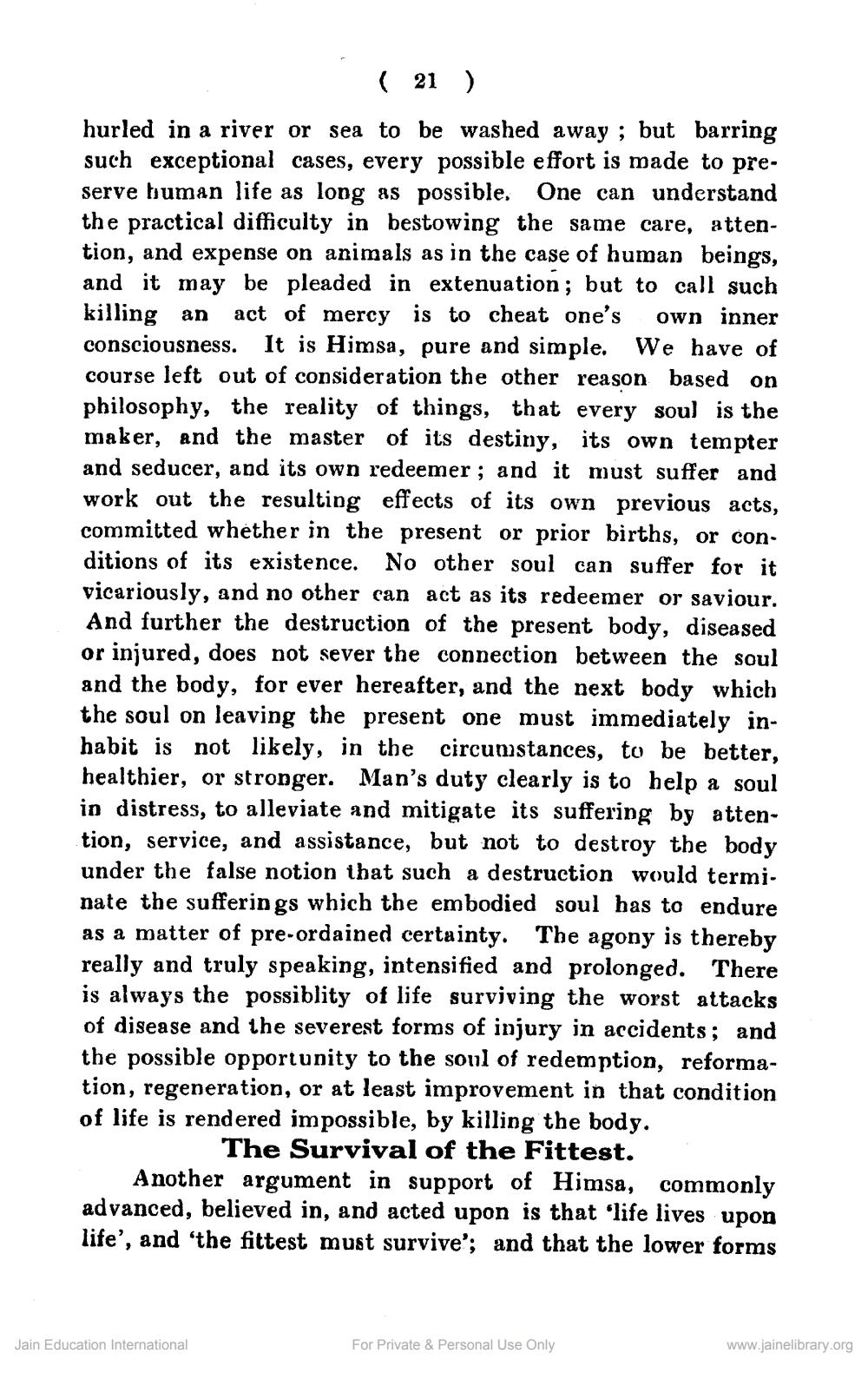________________
( 21 )
hurled in a river or sea to be washed away; but barring such exceptional cases, every possible effort is made to preserve human life as long as possible. One can understand the practical difficulty in bestowing the same care, attention, and expense on animals as in the case of human beings, and it may be pleaded in extenuation; but to call such killing an act of mercy is to cheat one's own inner consciousness. It is Himsa, pure and simple. We have of course left out of consideration the other reason based on philosophy, the reality of things, that every soul is the maker, and the master of its destiny, its own tempter and seducer, and its own redeemer; and it must suffer and work out the resulting effects of its own previous acts, committed whether in the present or prior births, or conditions of its existence. No other soul can suffer for it vicariously, and no other can act as its redeemer or saviour. And further the destruction of the present body, diseased or injured, does not sever the connection between the soul and the body, for ever hereafter, and the next body which the soul on leaving the present one must immediately inhabit is not likely, in the circumstances, to be better, healthier, or stronger. Man's duty clearly is to help a soul in distress, to alleviate and mitigate its suffering by attention, service, and assistance, but not to destroy the body under the false notion that such a destruction would terminate the sufferings which the embodied soul has to endure as a matter of pre-ordained certainty. The agony is thereby really and truly speaking, intensified and prolonged. There is always the possiblity of life surviving the worst attacks of disease and the severest forms of injury in accidents; and the possible opportunity to the soul of redemption, reformation, regeneration, or at least improvement in that condition of life is rendered impossible, by killing the body.
The Survival of the Fittest.
Another argument in support of Himsa, commonly advanced, believed in, and acted upon is that 'life lives upon life', and 'the fittest must survive'; and that the lower forms
Jain Education International
For Private & Personal Use Only
www.jainelibrary.org




